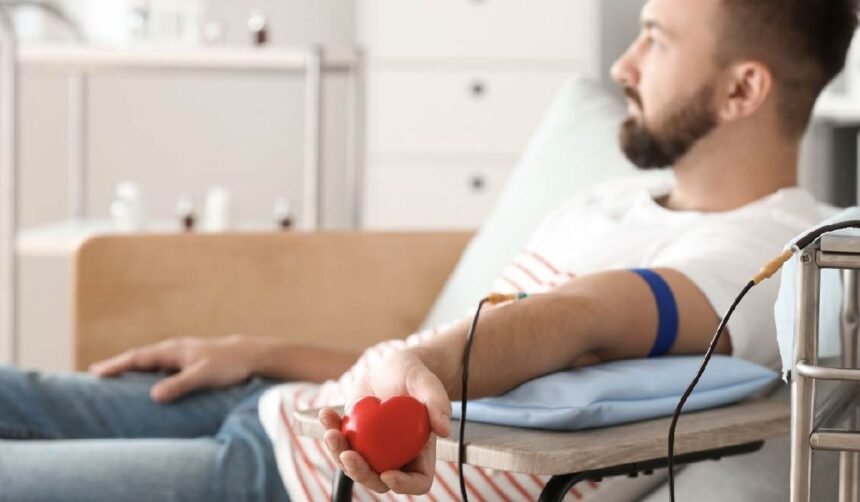People working in hospitality and housekeeping come into contact with risks every day. Bloodborne pathogens like HIV, hepatitis B, and hepatitis C can be spread through tasks such as handling dirty laundry, cleaning rooms, or dealing with accidental injuries. The World Health Organization estimates that more than 3 million workers are exposed to bloodborne pathogens each year, which shows why safety training is so important.
For hotel and housekeeping employees, BBP certification provides the training necessary to handle everyday risks comfortably. It informs them of the steps they can take to protect themselves and other employees. It leads to reduced accidents at work and improved compliance records for employers. It provides reassurance for employees that they can handle situations where they encounter blood or other harmful substances.
This blog will describe what BBP course is and what employees can do to become certified.
What is BBP Certification?
Bloodborne Pathogens (BBP) certification is a safety credential that shows staff have been trained to identify and handle the risks of exposure to infectious materials. These pathogens include viruses like HIV, hepatitis B, and hepatitis C, which can spread through contact with blood or other body fluids.
This certification is widely recognized across industries where staff face occupational exposure, such as healthcare, hospitality, and cleaning services. For hotel and housekeeping staff, BBP course certification is a way to show they follow safety rules and put the health of both employees and guests first. In the U.S., OSHA and other safety agencies stress how important this training is for jobs with higher risks of exposure. Even though it’s not always required by law in hospitality, many hotels now make it part of their regular training to cut down on liability and keep the workplace safe.
Why Housekeeping and Hospitality Workers Need BBP Certification
Housekeeping and hospitality staff are essential in ensuring hotel rooms are clean, comfortable, and safe for clients. Nonetheless, work related to these staff involves hidden risks. When switching dirty linens, cleaning up bathrooms, or cleaning up accidents, staff are at risk of exposure when they come into contact with blood or other bodily fluids. BBP course certification enables staff with knowledge of how to identify these risks and skills of mitigating them safely.
Risk of Exposure
Every day housekeeping tasks can bring unexpected exposure. For example:
- Handling soiled linens or towels that contain blood.
- Cleaning bathrooms or guest rooms where an accident occurred.
- Disposing of sharp items left behind, such as razors.
Without proper training, even something as simple as a small cut or skin contact can turn into a serious health risk. BBP course certification gives staff the tools to prevent accidents and stay safe on the job.
Protecting Employees and Guests
Guest comfort and safety depend on clean, well-managed spaces. Certified staff know how to handle biohazards correctly, reducing the chance of spreading germs. This protects both employees and visitors while also safeguarding the hotel’s reputation.
Legal Requirements
In the U.S., OSHA requires BBP training for anyone who may come into contact with bloodborne pathogens. While hospitality staff are not always covered under this rule many hotels include certification as part of their training. It’s a way to protect workers, follow industry best practices, and lower the risk of legal problems.
Reducing Workplace Accidents
BBP course certification teaches staff how to respond properly when an accident happens, such as a guest injury or a needle-stick incident. This reduces panic, ensures safe cleanup, and lowers the chance of anyone else being exposed.
Boosting Confidence and Morale
Employees who are trained and certified feel more secure in their jobs. They know exactly what to do in risky situations. This builds confidence and makes them feel valued by their employer. Safer working conditions also improve morale and teamwork.
Key Components of BBP Certification Training
BBP course certification training teaches staff how to stay safe when there is a chance of contact with blood or body fluids. The training is broken into simple steps that are easy to follow at work. It explains what bloodborne pathogens are, how to protect yourself with safety gear, and what to do if an accident happens. These skills help keep both employees and hotel guests safe every day.
Understanding Bloodborne Pathogens
The first step in BBP course certification is knowing what bloodborne pathogens are and how they spread. Staff learn about diseases can be passed through blood or certain body fluids. This knowledge helps employees spot risky situations and avoid them while at work.
Safe Handling and Disposal of Sharps and Biohazards
Housekeepers sometimes find sharp objects in guest rooms. These can be things like razors or even needles. BBP training explains how to deal with them safely. Staff learn to place them in the right containers and follow set disposal steps. Doing this cuts the risk of injury and helps stop infections from spreading to coworkers or guests.
PPE Usage and Hygiene Practices
Personal protective equipment (PPE) such as gloves, masks, and gowns, is essential for protecting staff. Certification teaches when and how to use PPE correctly along with the importance of good hygiene habits like handwashing. These practices create a strong barrier against accidental exposure.
Post-Exposure Procedures
Even with precautions, accidents can still happen. BBP course certification covers what steps staff should take if they are exposed to blood or bodily fluids—for example, washing the affected area immediately, reporting the incident, and seeking medical evaluation. Having a clear response plan reduces stress and ensures quick action.
Enroll in a BBP Course Certification to Protect Staff and Guests
BBP certification is a key part of keeping hotel and housekeeping staff safe. It trains employees to handle situations that involve blood or body fluids and helps protect guests from possible exposure. For employers, certification reduces liability, improves compliance with safety rules, and builds trust in their services. In hospitality where safety and cleanliness matter every day BBP course certification gives staff the knowledge to work with confidence.
Give your team the right training—enroll them in a BBP course and build a safer workplace for both staff and guests.









